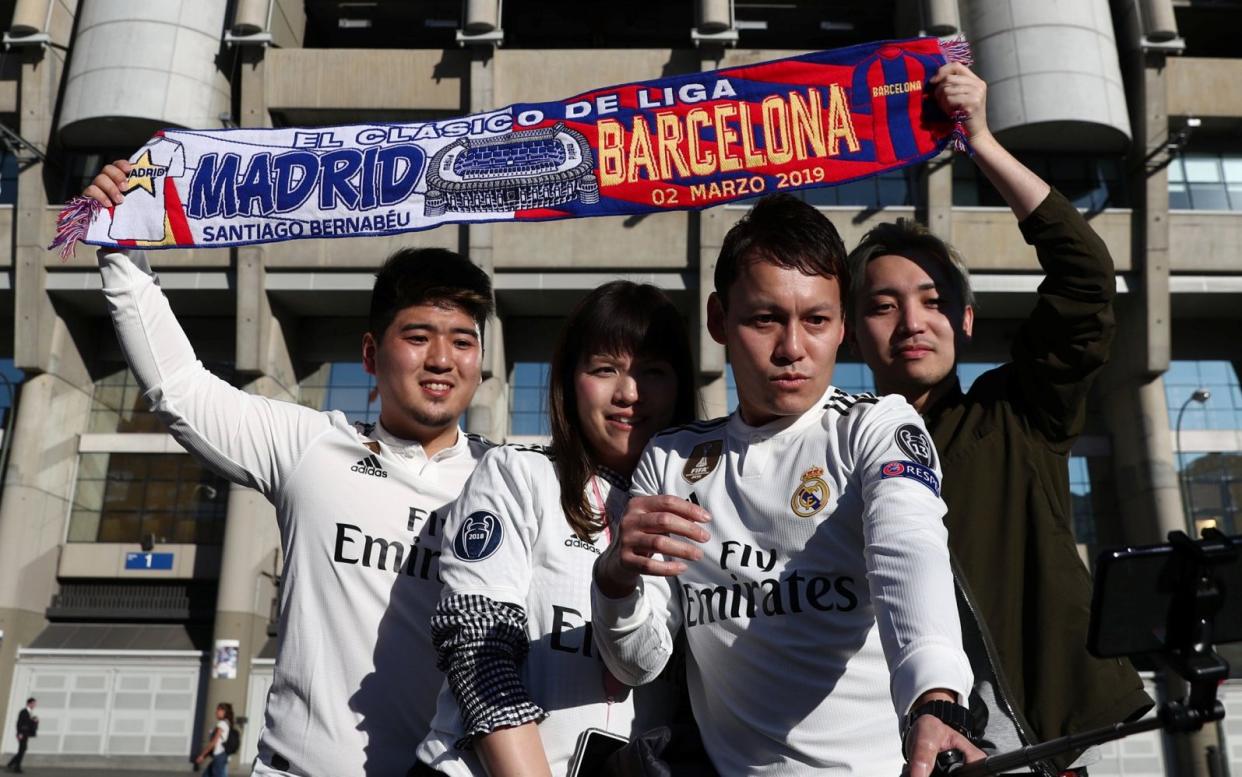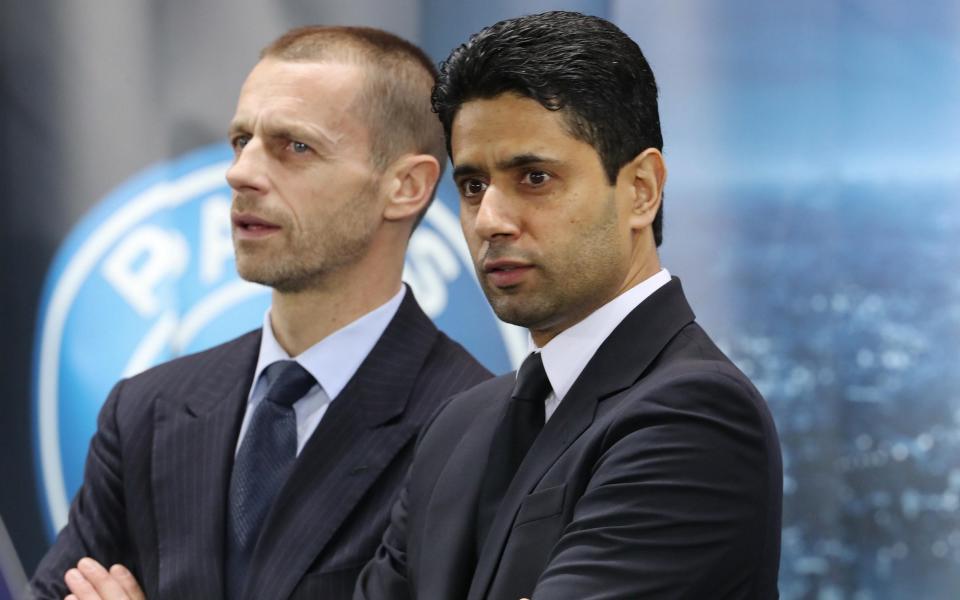Why would clubs topple Uefa? They already control it

- Oops!Something went wrong.Please try again later.
The question for those rebels who back the European Super League project – Florentino Perez, Joan Laporta and the small group of executives and financiers with skin in the game – remains the same: what next?
They have long proposed the demolition of Uefa’s monopoly of club competitions and the establishment, as with the Premier League, of competitions owned by clubs, but even they will recognise that mountain that may never be climbed. The most optimistic ESL evangelists from that Madrid office near the Bernabeu, where all ESL operations are run, including its advisors A22 Sports, would only say that the European Court of Justice ruling was potentially the beginning of something.
Under their proposals, a three-tier competition would mean that should, for example, Aston Villa finish in the top four this season, they would not enter the elite European competition, the Star League, nor the second tier Gold League. Instead Villa would be placed in the third tier Blue League.
Sometimes it is hard to decide what is worse: the format or the branding. The division of Europe’s best clubs into classifications that sound like the names of pre-school nursery classes does not conceal the fact that this is an idea proposed in 2019. Uefa’s members rejected it then as opposition grew from domestic leagues. They did the same this time – now because any notion of the ESL has become so stigmatised none can safely go near it.
By Thursday evening all of the Premier League’s big six had rejected the idea as well as more big hitters across Europe. It did not feel like European football was on the brink of change. The backers of the ESL, Real Madrid and Barcelona, as well as A22 and its American financiers, have always committed themselves to total revolution. Nothing less than the defeat of Uefa. Increasingly one suspects the most disruptive influence will come from elsewhere.
Uefa has not been able to dictate terms to the clubs for a long time and as its influence has gradually been eroded, its battle has been to avoid the fate of the English Football League in 1992.
Instead it is in a marriage of convenience with the European Club Association (ECA), led by Paris StGermain chairman Nasser Al-Khelaifi. Between them, Uefa president Aleksandar Ceferin and Al-Khelaifi have created the new post-2024 Uefa competition format and divided the wealth that flows from it, with the Qatari negotiating on the part of the clubs. Al-Khelaifi holds another card, too, the huge Middle East broadcast deal that Uefa has with the Qatari beIN Sports.

Not everyone likes it, especially the lack of effective financial control of nation-state clubs of which PSG are one. Perhaps that is why Arsenal are newly radicalised in their opposition to nation-state clubs. Nevertheless, for now, that Uefa-ECA axis holds strong.
Broadly speaking, the tail wags the dog: Uefa does not move without ECA’s approval and the two own a joint venture that controls all the billions of euros of competition revenue. ECA’s power is only likely to grow and one assumes at some point a peace accord will be agreed with Real and Barcelona to allow the rebels to slip quietly back into government. The great ESL revolution will be over.
Most now are focused on a new front: the Fifa Club World Cup expansion launching in 2025. That looks like a much more credible challenge to the hegemony if Fifa can find a wealthy backer. Naturally one hesitates to look much further than Saudi Arabia. If the suggested starter prize money of €50 million (£43 million), rising potentially to €100 million (£86 million) for the winners, is correct, then this will be the agent for change.
It would create a new tier of clubs, capable of operating on a global level when it came to negotiating commercial deals and potentially developing revenue streams bigger even than those on offer in European football. A four-yearly competition might become a two-yearly competition and then – with the calendar at breaking point - something would have to give. That may well be domestic league football, and the number of clubs in top leagues.
In the time since the fall of Super League 1.0, Fifa and ECA have reached an agreement to secure the space in the calendar for the Club World Cup. ECA has the same agreement with Uefa for the new Champions League and its other competitions. The power dynamic of world football – those who control its finance distribution and those who monopolise its calendar – has flexed and realigned.
If there is to be further great change and transferral of power from Uefa to the clubs, then it is likely to happen through the arrangement already in place. The ESL breakaway might have failed but it made clear to Ceferin and Uefa that any deal with ECA was better than none with the ESL.
Degree of shame for Premier League clubs
As for the clubs, and their ownerships, the power of the fans that took to the streets over ESL was chastening. It will not have changed clubs’ plans to control more of the wealth, but it will certainly have influenced how they shape the public relations around it. Whatever gains the ESL might have won in the ECJ, the clubs will consider them much better exploited by applying pressure subtly behind the scenes. It is easier than trying to blow-up Uefa and recreate it anew.
There is a degree of shame too, among the Premier League clubs especially, that back in April 2021 they each handed over €2 million (£1.7 million) to the ESL and signed up to €300 million (£260 million) contractual penalties for leaving. Whatever happened to all that money is unclear. Some like Manchester City and Juventus have written it off in financial results. Others seem less willing to do so.
What was it all for? The ESL project, sustained by that small group of executives and financiers close to Perez, has always been something of a mystery. They seem committed to a belief they can topple Uefa but in all the time it has taken to get this far, European football already has new key players and new pressures shaping it.

